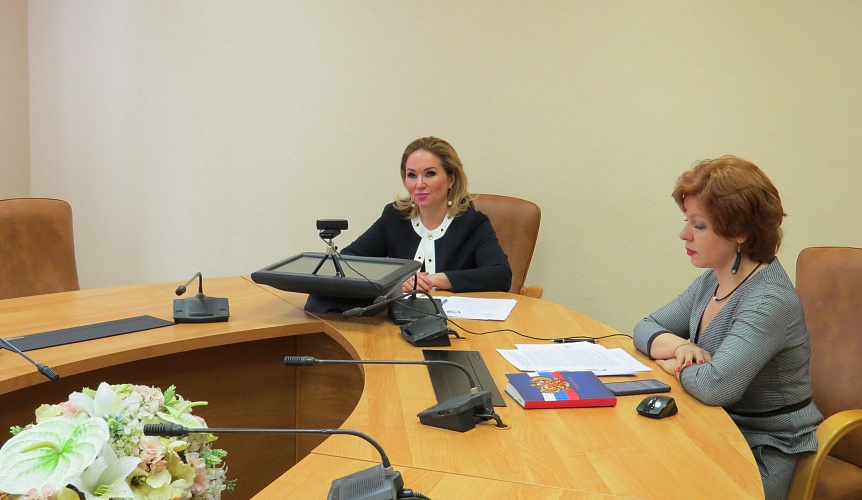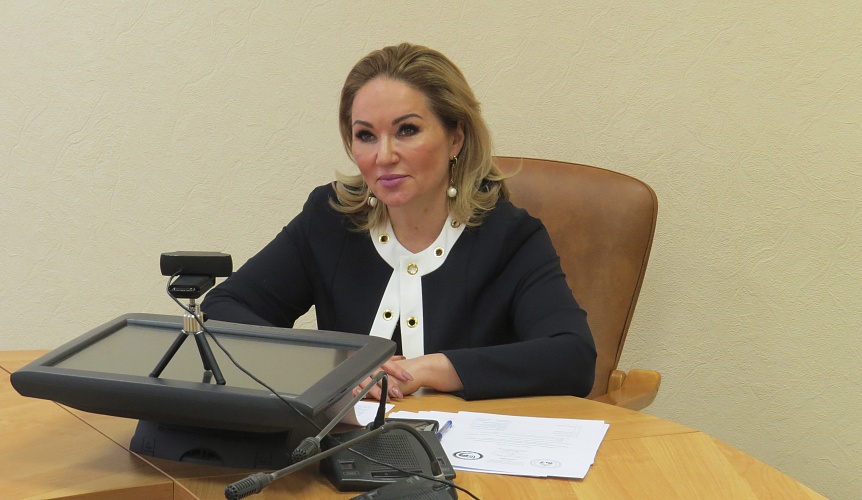News
Participants of the international seminar discussed modern trends in the study of the Chinese language
On March 25, within the framework of the XI St. Petersburg International Educational Forum, a scientific and practical seminar "Chinese Language: Modern Trends in the Development of Educational Motivation of Students" was held in the videoconference mode. The participants of the international online meeting were welcomed by Elena Vladimirskaya, the First Deputy Chairman of the Education Committee.
The Education Committee has partnerships with such cities in China as Beijing, Shanghai, Wuhan. Various events are held to exchange experience and best teaching practices with Chinese colleagues. As Elena Vladimirskaya noted in her speech, the partners from Shandong Pedagogical University were the first to send a video message for the participants of the XI St. Petersburg International Educational Forum. The film tells about how education affects the quality of life in China. The video materials can be found on the forum's website in the section "Video Messages".
"When choosing a foreign language for a child, parents often ask about its practical benefits for a future career, but not everyone thinks about how much the language can help in development. Why is it useful for children to learn this Asian language, and what important skills do you develop when learning it? How to motivate a child to learn such a difficult language? Chinese language is considered to develop thinking, increase the IQ of a child and develop a lot of valuable skills that will be useful in his future life no less than just knowledge. They are, first of all, imaginative thinking, logic, attentiveness, perseverance and even musical ear, " said Elena Vladimirskaya.
The First Deputy Chairman of the Committee also reminded that the Chinese language is the most common among rare languages in St. Petersburg. In total, more than 2 thousand schoolchildren study it. Of these, 909 students are registered as those who study Chinese as a first foreign language within the main programme, and 246 students study Chinese as a second foreign language. Students actively demonstrate the outcomes of studying Chinese by participating in various events, competitions, festivals and Olympiads that are held in our city.
In February 2021, more than 25 events of the traditional Chinese New Year celebration were held in the field of education. They were organized by various institutions – these were schools where Chinese is traditionally studied, lyceums and gymnasiums where Chinese is studied additionally, voluntarily, as well as by institutions of supplementary and vocational education.
In the 2019-2020 school year, 35 people took part in the regional stage of the All-Russian Olympiad of Schoolchildren in Chinese. 3 students from St. Petersburg were invited to the final stage, two of them became winners of the final stage. In the current academic year, 51 students took part in the regional stage of the Olympiad, 4 of them became winners, 18 – prize-winners.
The speakers of the seminar were also Consul General of the People's Republic of China in St. Petersburg Wang Wenli, Rector of the Institute of International Exchanges at the Jilin University of Foreign Languages Dong Wencai, Director of the Academy of Oriental Languages and Culture "Confucius" Zhang Xiunli, Head of the Education Department of the Vasileostrovsky district Olga Tsibizova and Director of gymnasium No. 32 "Gymnasium of St. Petersburg Culture" of the Vasileostrovsky district Oksana Korshunova.
Experts from different regions of Russia and foreign countries – China, the United States, Armenia and Kenya – made reports on current trends in educational motivation of students. Educational institutions of St. Petersburg shared their professional experience in teaching Chinese – Gymnasium No. 32 "Gymnasium of St. Petersburg Culture" of the Vasileostrovsky district, Gymnasium No. 664 of the Krasnogvardeysky district, Gymnasium No. 652 of the Vyborgsky district, and Kindergarten No. 5 of the Nevsky district.


